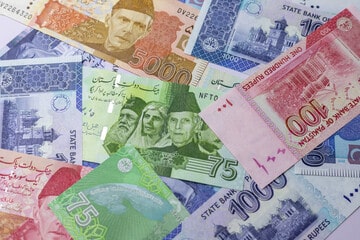In recent months, Pakistan has witnessed a significant monetary policy shift with the introduction of currency notes. This move by the State Bank of Pakistan (SBP) has sparked debates and speculations, with many questioning whether it is influenced by external factors, particularly the International Monetary Fund (IMF). Likewise, “OK Sir G” delves deeper into this decision, its implications, and its driving forces. Instead, it is designed to keep the country open for international capital to do business.
IMF Conditions and Policy Reforms
Meanwhile, one of the critical aspects of IMF programs is the imposition of conditions and policy reforms that member countries must adhere to in exchange for financial assistance. These conditions typically include fiscal austerity measures and monetary policy adjustments to improve economic efficiency and sustainability. Nevertheless, in the case of Pakistan, the IMF’s influence on monetary policy and currency management must considered.
IMF on Pakistan’s Decision for New Currency
In recent months, Pakistan’s financial landscape has been rife with speculation and debate surrounding the issuance of new currency. Only a few have questioned the motives behind this decision, with some suggesting that the IMF may influence it. Despite this, Let’s delve deeper into this topic and analyze the potential implications for Pakistan and its global counterparts.
Likewise, the issuance of new currency is expected, as countries often update their currency designs for various reasons, including security enhancements and combating counterfeit currency. However, when such a decision is made in the context of a country’s economic challenges. Its relationship with international financial institutions like the IMF naturally raises eyebrows.
Implications for Currency Notes
Equally, given Pakistan’s recent engagement with the IMF under the IMF program, questions arise about the influence of the Fund on the country’s monetary decisions, including the issuance of currency. Meanwhile, the decision to introduce currency notes can be viewed within the broader context of Pakistan’s commitment to fulfilling IMF requirements and demonstrating fiscal discipline. Similarly, while the specifics of the IMF’s involvement in this decision may not be explicitly stated, the overarching objective of aligning with international best practices and enhancing transparency in the financial system is evident.
The decision to introduce currency notes in Pakistan comes amidst various economic challenges and reforms undertaken by the government and the SBP. The objectives behind this initiative include combating counterfeiting, enhancing security features, and improving the overall efficiency of the currency circulation system. Additionally, it aims to align Pakistan’s currency standards with international best practices, promoting transparency and trust in financial transactions.
Unveiling the State Bank of Pakistan Role
As the country’s central bank, the State Bank holds the authority to regulate the issuance and circulation of currency. Likewise, its primary responsibility is to maintain price stability and ensure the soundness of the financial system. Therefore, any decision regarding introducing new notes falls within the purview of the SBP’s mandate to safeguard the integrity of the national currency.
Eventually, as the central bank is entrusted with regulating the country’s monetary and financial system, the State Bank of Pakistan will play an important role in issuing notes. Earlier, the decision to introduce new notes reflected a commitment to upholding the stability and credibility of Pakistan’s currency. Ensuring that it remained a reliable medium of exchange.
Benefits of New Currency Notes
Explicitly, introducing new notes brings several potential benefits to Pakistan’s economy. Firstly, it allows replacing older notes prone to counterfeiting or deterioration, enhancing the currency’s security. Moreover, issuing new notes can facilitate the transition to a digital economy by incorporating advanced security features and technology.
Formerly, introducing new currency notes signifies a tangible change in Pakistan’s monetary landscape. From Lahore to Karachi, Islamabad to Rawalpindi, and beyond to major cities worldwide. The news has become a topic of discussion among citizens, economists, and policymakers alike. These notes represent more than just a cosmetic makeover; they reflect underlying economic policies and external pressures.
While introducing new notes in Pakistan has sparked debates about IMF influence and domestic policy imperatives. It’s essential to view this decision holistically. Finally, external factors such as IMF conditionality may play a role. Domestic economic realities and the need to modernize the monetary system are equally significant drivers.